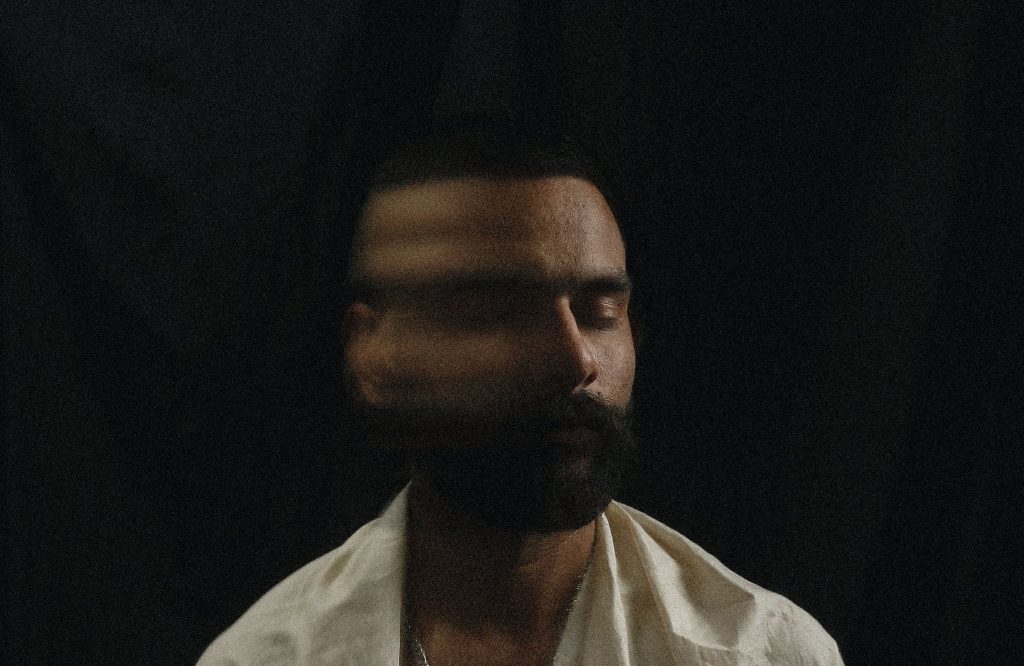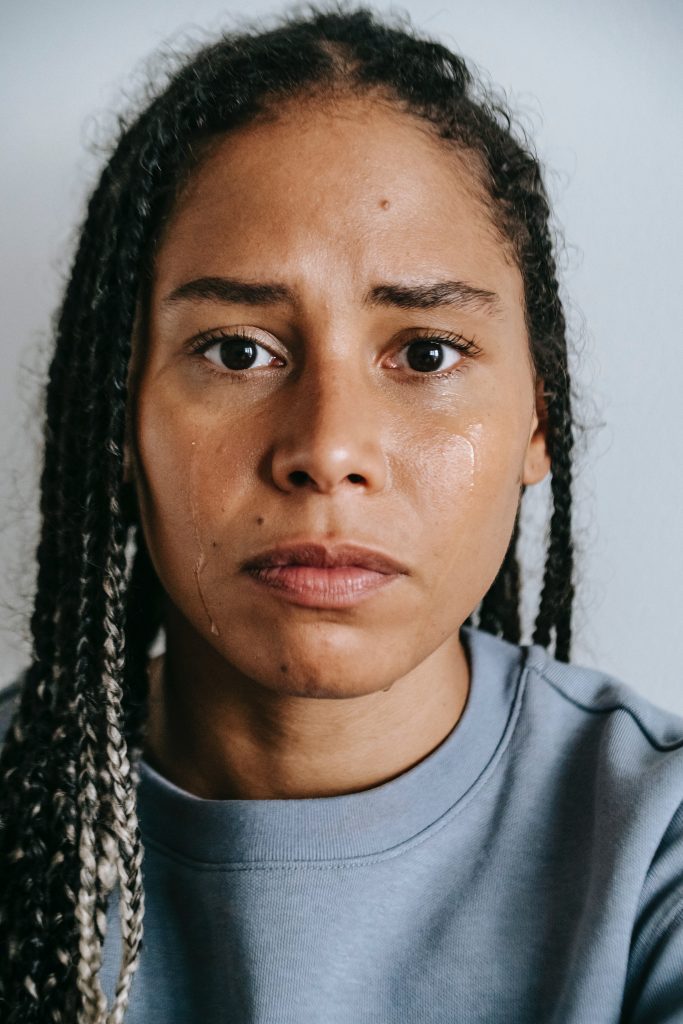My Experience with Anxiety and How I Overcome It

During the times I’ve faced mental illness or mood disorders, depression and anxiety have typically gone hand in hand. The focus may shift, but often one may cause the other. For instance, anxiety over a looming deadline or intolerable situation may cause me to retreat and behave more in line with depression, out of fear of facing the perceived lack of control that ADHD leaves me with. The lack of productivity that comes with depression can cause anxiety as my performance falters and tasks pile up. Sometimes it’s hard to know which one is in control. For me they’ve always seemed more like two sides of the same coin, often engaged in a tug-of-war. Hot and cold, day and night, up and down, loud and quiet, run and hide, anxiety and depression. Like that.
As with depression, anxiety for me has always manifested in both psychological and physical forms. While depression typically means being solitary, motionless, and effectively hiding from the world, anxiety may look like hyperfixation on a problem that I’m unable to fix, or fear of a crisis I can’t control. If you saw my previous article about depression you know the overall timeline, and if you haven’t I’ll gloss over it. I think I first started experiencing anxiety out of a loss of control over my grades in middle school. I don’t know which came first, mainly because anxiety can manifest in a fight-or-flight state and those memories have a shorter lifespan. The depressive periods were quite the opposite. It was never directed at my grades, so much as the consequences of them, as well as interpersonal issues that are essentially life or death to a teen (especially one with RSD).
Anxiety has often yanked me out of reality, led me to say and do things that someone in touch with reality wouldn’t do, and then compound itself later as a result of the consequences. That would often be from embarrassment and shame caused by me hurting people I cared about, but as a teen could mean actual punishment. The loss of reality has, for me, often been the most significant difficulty with anxiety, because it makes the anxiety harder to reason your way out of as it gets worse. It becomes exponentially harder to come back to Earth, and in the process you can end up upsetting or hurting people that matter a lot to you. I’m overwhelmingly an inward-facing person in crises like this, so it speaks volumes about anxiety that I could count myself lucky that I never really feel it turn into an urge to lash out physically at someone. It has turned into the verbal equivalent, but more than anything else has been the need for a listener who then gets overburdened or worn out by my episodes. Somehow this only became threatening to relationships in the past year.
In individual crises, spiraling emotions and panic would inflate the whole situation into some sort of crescendo or breaking point, sometimes resulting in consequences I could neither repair or escape. In less critical periods there would be an ebb and flow, with my unreliable short-term memory making important lessons harder to learn, and I would repeat mistakes over and over. Only now do I recognize this as something probably specific to ADHD, but giving yourself reminders for crisis management is a little harder than making reminders to take your medicine and feed your cat. Where do you place reminders for yourself to read when you’re off on some distant panic planet?
While my memories of how I felt or what I was thinking during those times are very vague, my memories of the events themselves are much clearer, just with less context. Even with a couple of very extreme acts or situations I found myself in, I cannot for the life of me remember why I did what I did. While this could be the ADHD, it also speaks to the tunnel vision that occurs in periods of heightened anxiety and fight-or-flight situations. Either way, in many cases, the rationale was far less important to me than trying to catch what I was chasing. Like I was only trying to excuse whatever subconscious motivation was shoving me forward by essentially trying to guess what my reasons were and passing it off as the real purpose, knowingly or not.
DBT, or Dialectical Behavioral Therapy, which is a form of therapy that understands gray areas and finding balance, has an excellent concept that can be applied to anxious situations. Think of two circles forming a venn diagram. On one side you have what’s called Emotion Mind, which is exactly what it sounds like. A mindset drunk on the intoxicating and overwhelming power of emotion, with little understanding of how much of it is in line with reality. The other circle is Reason Mind, effectively the opposite. It’s a mindset totally concerned with facts and logic, but can be cold and detached in some circumstances. Neither is inherently good or bad. For instance, Emotion Mind is helpful at an emotionally significant and positive event, like a wedding or a graduation ceremony. Reason Mind is helpful in situations like education and testing, and doing your taxes. However, let’s say- hypothetically- a parent sends their child to a really respected boarding school with no real acknowledgement of how that kind of change and separation affects the child. The child may get a better education, but will experience emotional difficulties the parent has totally overlooked. In the case with emotion mind, a lot of decisions made during periods of anxiety fit. Ever paid way more than you should have for something because you’re desperate for a hit of dopamine? That was emotion mind at its mildest. Emotion and Reason Mind come together in the venn diagram as Wise Mind. Wise Mind weighs reason and emotion equally within the context of the situation, and seeks to understand and make the most thoughtful decision possible. Now, say you apply these three to an anxious episode where emotion has completely taken over. That’s a dark part of Emotion Mind. Reason Mind may find a better solution, but without a way to resolve the catastrophic emotional state, you’re not going anywhere. With Wise Mind, you’re able to tackle both. You can view emotion through a more reasonable lens and view your rational decisions and understand how they affect you emotionally. Especially if you’ve practiced mindfulness, you’ll be able to use reason to dial back the emotional overload, often simply by recognizing a thought and thinking critically about it. By seeing beyond your own emotions you may also understand the emotions of those around you before it’s too late.
Given the tug-of-war state that many can find themselves in due to anxiety and depression, sometimes the way you treat it can cause conflict as well. In the case of depression, long walks outside can help. However, I have had that backfire on a select few occasions due to anxiety. The trick, I think, is to learn how to handle both disorders at once. For instance, treating depression with your physicality and daily self-care habits while using mindfulness to recognize cognitive distortions and overpowering emotions before they can grab the wheel and steer you off a cliff. The act of exercise itself can be tricky because of how anxiety and a heightened heart rate can feel connected in people who live sedentary lifestyles. I think the difference is that with exercise you want to push through until you’re exhausted, while anxiety seems more likely to raise the heart rate to a specific point and keep it there. Stretches can also help alleviate anxiety. Really, when both anxiety and depression are a problem, it’s good to focus on a positive activity that also calms the mind. A walk in the park, a trip to some place nearby like a beach or forest depending on where you live. I even used to just go on aimless drives, since the rural landscape didn’t have many options for walks. The goal was to get out of town, onto a highway or a small road where there was no traffic, and you could zone out with your music. That also comes with issues like gas consumption of course, so walking is usually your best bet- whether that’s leisurely walks in an urban setting or something more aerobic on a trail or in a public park- in those cases the clean air definitely helps.
In periods of overwhelming anxiety, there are a few tips that help to reset your state and allow you to conquer those spiraling fears. One that has proven very useful for myself and many I know is deep breathing. This can be in the form of meditation, or it can be a simple pause to breathe deep and get a lot of oxygen, recenter and reset. Whether depression is a part of the problem or not, I would almost always recommend beginning there. Aside from that, CBT and DBT exercises can make a world of difference if you can develop the habit. As mentioned before, stretches can help, and the overall shape you’re in and your diet can have an impact. Understand that I don’t mean weight, I mean whether or not your body is getting what it needs, regardless of any societal perspectives on what your weight does or doesn’t mean. If you want to lose or gain weight for self-esteem reasons, doing so will enhance your mood overall, but will not resolve your anxiety on its own. I lost 30 pounds at the beginning of the pandemic and have only gained 5 back, and I’m sure it’s made a positive impact, but not enough that I didn’t still need a lot of help and a lot of work on myself.
There are other techniques I think that may be unique to one person or another. Something that worked fairly well for me in times of extreme stress was, in fact, deliberate withdrawal. I feel compelled to mention this because it gave me the time and sense of safety to help me get out of what I was dealing with, but the way I did it probably looked more like runaway depression than anything. That said, somehow, it worked. For the sake of preventing depression I couldn’t recommend, just as an example, hiding in a dark bedroom and binging wholesome 80’s anime- but in a couple of mini-crises the sense of security did make enough of an impact to help turn things around. That raises the question, what situation could you put yourself in that is both reasonably healthy and will provide you with a sense of comfort and security greater than normal? Maybe it would just be a movie night with a friend, or visiting family. Maybe it would be something as simple as a change to your sleep habits that makes you feel more comfortable and secure while you sleep. I haven’t tried a weighted blanket, but I’ve heard good things and I can see it helping with anxiety- as long as you don’t spend all day in bed and fuel depression.
Additionally, you need to understand which thoughts, situations, sounds, images, movies, music, and so on can ignite or worsen your anxiety- or, alternatively, ease it. I feel like this is something that needs to come first as a preventative measure, and is most often learned through mindfulness, but it’s a habit that’s easy to break by accident. It can be very frustrating but there may be things you love that can lead you to negative thoughts, especially if a relationship has been lost. Creating distance from them can be difficult but necessary. Remind yourself that you can return to them at a later time, if they’re giving you stress over a recent event, and they’re just temporary triggers for a temporarily difficult situation. At some point you can return to them and reframe them, sometimes with new memories if it’s a place you went to with an ex-partner or friend.
As far as overcoming the two goes, I think overcoming depression requires active, positive habits and self-care while anxiety may be more specific to a particular situation or pattern of thought. At least that’s the case with me. There are also times, I’m sure, where it’s the opposite. Too much caffeine is a great way to give yourself anxiety, so that and other habits may be something you have to change in your day-to-day. At the same time, staying active isn’t always enough for depression, because you’ll have to go to sleep at some point and you need to be able to counter those negative thoughts about yourself as well as actually get out of bed in the morning.
There is no universal swiss army knife for depression and anxiety, but instead there are a variety of tools available and in order to know what to put in your toolbox, you’d be well advised to try as many as you can and listen to the advice that any mental health professional may offer. This applies to other disorders as well, such as ADHD.
Do you have any tips or techniques that have helped you overcome a mood disorder? If so, feel free to share it with us in the comments- you never know who else may be able to turn the tables on their disorders using the things you’ve found to work.




Responses